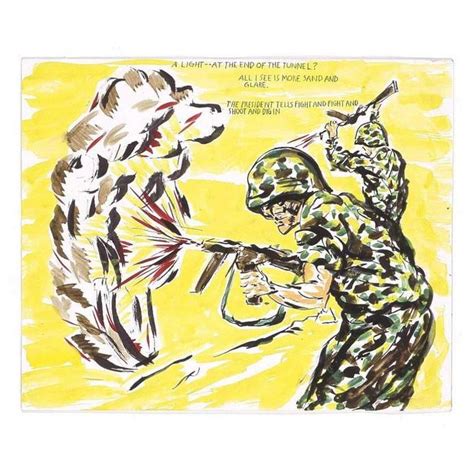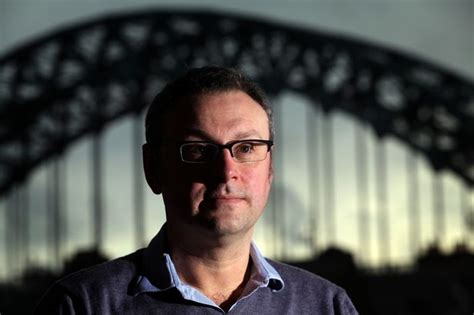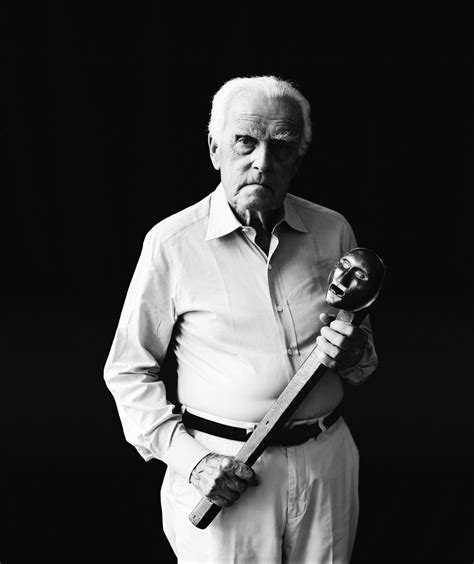A Quote by Robert Lepage
A puppet, for example, is just a piece of wood, a couple of rivets, but put them together, and if you know how to do it, and the audience's imagination joins in with this, then a miracle will come out of that machine. That is what we and the audience do in the theatre - we create miracles in that space.
Related Quotes
To be honest, I am not theatre-trained and though I am confident in my skill set, to do theatre requires a better-tuned set of muscles and I sometimes defer to actors who are better trained. But at the times I do want a shot, I'll go for it, especially if the piece speaks to me and the opportunity comes up. The immediate response from a theatre audience is so thrilling, affirming, and soul-feeding; to know how you've affected an audience at curtain can be ego-blowing, both good and bad.
I love dipping into worlds at a fast and furious pace. A little glimpse allows the audience to put together the rest of that world in their brain. I love sketches that require the audience to piece together the comedic engine themselves. Give them all the information but not tell them what the scene is about so they can have that eureka moment of, "Oh my God, he's only used to the way urban students pronounce their names. That's what's going on here.".
Katalyst is a merger of three industries. A piece of us is connected to ad agencies. Because we get the complex overlay of the social Web, we know how to engage an audience and how to make entertainment for the social Web. And we know how to gain and activate and retain an audience. So we create social networks for brands.
Sometimes, you know how good certain people are and then you actually get to see them have the kind of matches you know they can have in front of an audience that isn't used to seeing that. Then, in a few minutes the audience is on the edge of their seats, just through the sheer craftsmanship of their abilities.
What social media has done - Facebook, Twitter - is show the audience. I don't have an audience. When I make my work, it just goes out into the ether. I have a thick skin and it just brings me down to earth, you know, to realize how out-there and far away and paltry the audience is that gets what I'm saying. It's depressing if I let it get to me. And it's the same with hanging a show, the way it's put up, like, three stories high and you can't read a single word.
Many people become self-conscious when they communicate. Whether it's writing or speaking, they are consumed by anxiety. Self-consciousness is an impediment to what is required to serve an audience effectively. One's goal must be to achieve audience consciousness. To put oneself in their place, to recognize that the value of any communication arises from how it is received by them, not by what it means to the author. Rather than learning a multiplicity of rules for speaking, for example, I would suggest that a focus on serving one's audience will simplify and clarify everything.
An audience will let you know if a song communicates. If you see them kind of falling asleep during the song, or if they clap at the end of a song, then they're telling you something about the song. But you can have a good song that doesn't communicate. Perhaps that isn't a song that you can sing to people; perhaps that's a song that you sing to yourself. And some songs are maybe for a small audience, and some songs are for a wide audience. But the audience will let you know pretty quickly.
If you address yourself to an audience, you accept at the outset the basic premises that unite the audience. You put on the audience, repeating cliches familiar to it. But artists don't address themselves to audiences; they create audiences. The artist talks to himself out loud. If what he has to say is significant, others hear & are affected.
Put in every joke that's not a dud and then let's just start pulling the ones that work the least. You're just constantly sifting until you're left with the biggest chunks of gold. The audience also tells you what some of those chunks are. You can have your own favorites, and then, once you screen it for an audience, the audience tells you what they're entertained by. I feel like that's a big part of it.






































